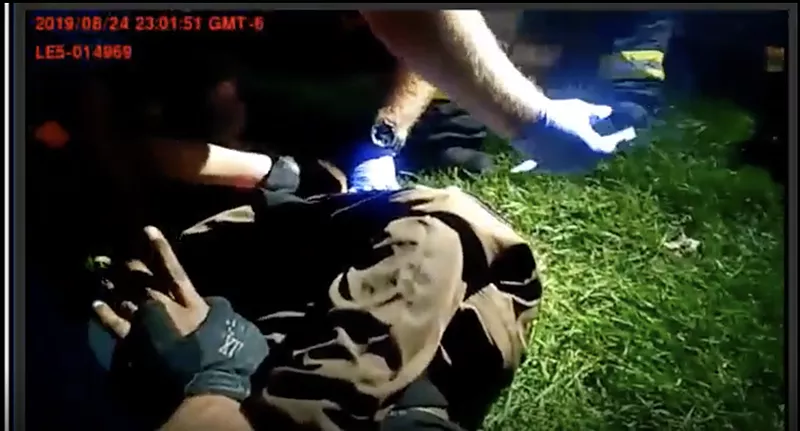This is a response to your article "Five Years After Elijah McClain's Death, What's Changed About Colorado's Use of Chemical Restraint?"
Ketamine is not the issue with paramedics; the issue is the small minority of paramedics who do not assess and then continually reassess their patient. The heartbreaking murder of Elijah McClain on August 30, 2019, has been attributed to ketamine. This shifts some of the blame from Aurora Police and Fire to a medication that, when used correctly and administered by a conscientious health-care provider, has a variety of benefits beyond sedation.
The fact is, the actions that the Aurora Fire paramedics took with Elijah McClain included not assessing their patient but rather taking the word of Aurora Police officers, and not reassessing their patient continually once he was in their hands. Aurora Fire continues to injure patients throughout Colorado by providing the impetus for medical directors to regulate ketamine, so that paramedics are extremely limited in its use for the variety of conditions for which it is indicated.
I have been a paramedic since 1989, and I’ve worked in Texas in an individual city agency as well as a fire department, and now for an EMS provider on the Front Range as training director. I learned at nineteen years of age to be cautious of what law enforcement asks of you, first in El Paso County, Texas, and then in Austin, Texas (where a patrol officer swung his Maglite at my head when I tapped his leg to get him off a patient). Throughout my career since, I have practiced and taught that we must be, first and foremost, advocates for the patient. We cannot and do not allow anyone, including law enforcement, to interfere with our advocacy for patients.
To medical professionals who viewed the distressing body-cam video of Elijah McClain, the issue was clear: Aurora Police positioned Elijah in a manner that occluded his breathing, while leaving him in a mask he had vomited in, and Aurora Fire personnel did not immediately roll him over and clear his airway, and did not immediately assess him. Had they assessed him, he never would have been sedated, because he was in no way combative and in no way a danger to himself or others. A professional paramedic would have used the Richmond Agitation Sedation Scale to determine the necessity of sedation, and Elijah would not have registered on that.
The ketamine did not kill Elijah. Had they assessed and then reassessed Elijah, continuously, they could have immediately treated his cessation of breathing, and Elijah would not have passed.
Ketamine has potential side effects, as do all medications. These are known and rapidly reversed by paramedics who are continually reassessing their patients. When used correctly at the right dosage and speed of administration, ketamine is a very safe sedation medication, being more stable and less likely to cause cessation-of-breathing and/or a low blood pressure than other sedatives. It works wonders in acute pain management; its amnesiac qualities lessen PTSD over traumatic events, as proven in our soldiers overseas. It is used in asthmatic treatment. It has also recently been proven to be efficient at stopping seizures. Not to mention its use in long-term psychiatric care.
No, the problem is not ketamine. The problem is the minuscule number of paramedics who do not assess and then continually reassess their patients, along with those same paramedics who allow law enforcement to dictate their treatment.
Paramedicine is a profession of compassion, and in 35 years, I’ve witnessed amazing people doing an incredibly hard job without losing empathy for their patients. Please understand that when you call 911, the great amount of the time you will receive very compassionate, empathetic care from true professionals. Next time you meet a paramedic, you will almost assuredly find this to be true.
This is a submission in response to your article, "Five Years After Elijah McClain's Death, What's Changed About Colorado's Use of Chemical Restraint?" My submission details the fact that it was not ketamine that killed Elijah; it was the initial inappropriate care by Aurora Police; the fact that Aurora Fire listened to Police rather than doing a patient assessment; and then the lack of reassessment by the Aurora Fire Paramedics. Also to blame was a lack of empathy and patient advocacy. Aurora Fire continues to injure patients throughout Colorado by providing the impetus for our legislature to remove ketamine from paramedics for all but its use for pain management.
David Leonard is a 35-year critical-care paramedic.
Westword.com frequently publishes commentaries on matters of interest to the community on weekends. Have one you'd like to submit? Send it to [email protected], where you can also comment on this piece.

Audio By Carbonatix
[
{
"name": "Air - MediumRectangle - Inline Content - Mobile Display Size",
"component": "12017618",
"insertPoint": "2",
"requiredCountToDisplay": "2",
"watchElement": ".fdn-content-body",
"astAdList": [
{
"adType": "rectangle",
"displayTargets": "mobile"
}
]
},{
"name": "Editor Picks",
"component": "17242653",
"insertPoint": "4",
"requiredCountToDisplay": "1",
"watchElement": ".fdn-content-body",
"astAdList": [
{
"adType": "rectangleLeft",
"displayTargets": "desktop|tablet"
},{
"adType": "rectangleRight",
"displayTargets": "desktop|tablet|mobile"
}
]
},{
"name": "Inline Links",
"component": "18838239",
"insertPoint": "8th",
"startingPoint": 8,
"requiredCountToDisplay": "7",
"maxInsertions": 25
},{
"name": "Air - MediumRectangle - Combo - Inline Content",
"component": "17261320",
"insertPoint": "8th",
"startingPoint": 8,
"requiredCountToDisplay": "7",
"maxInsertions": 25,
"watchElement": ".fdn-content-body",
"astAdList": [
{
"adType": "rectangleLeft",
"displayTargets": "desktop|tablet"
},{
"adType": "rectangleRight",
"displayTargets": "desktop|tablet|mobile"
}
]
},{
"name": "Inline Links",
"component": "18838239",
"insertPoint": "8th",
"startingPoint": 12,
"requiredCountToDisplay": "11",
"maxInsertions": 25
},{
"name": "Air - Leaderboard Tower - Combo - Inline Content",
"component": "17261321",
"insertPoint": "8th",
"startingPoint": 12,
"requiredCountToDisplay": "11",
"maxInsertions": 25,
"watchElement": ".fdn-content-body",
"astAdList": [
{
"adType": "leaderboardInlineContent",
"displayTargets": "desktop|tablet"
},{
"adType": "tower",
"displayTargets": "mobile"
}
]
}
]











